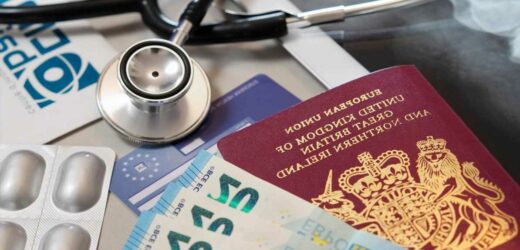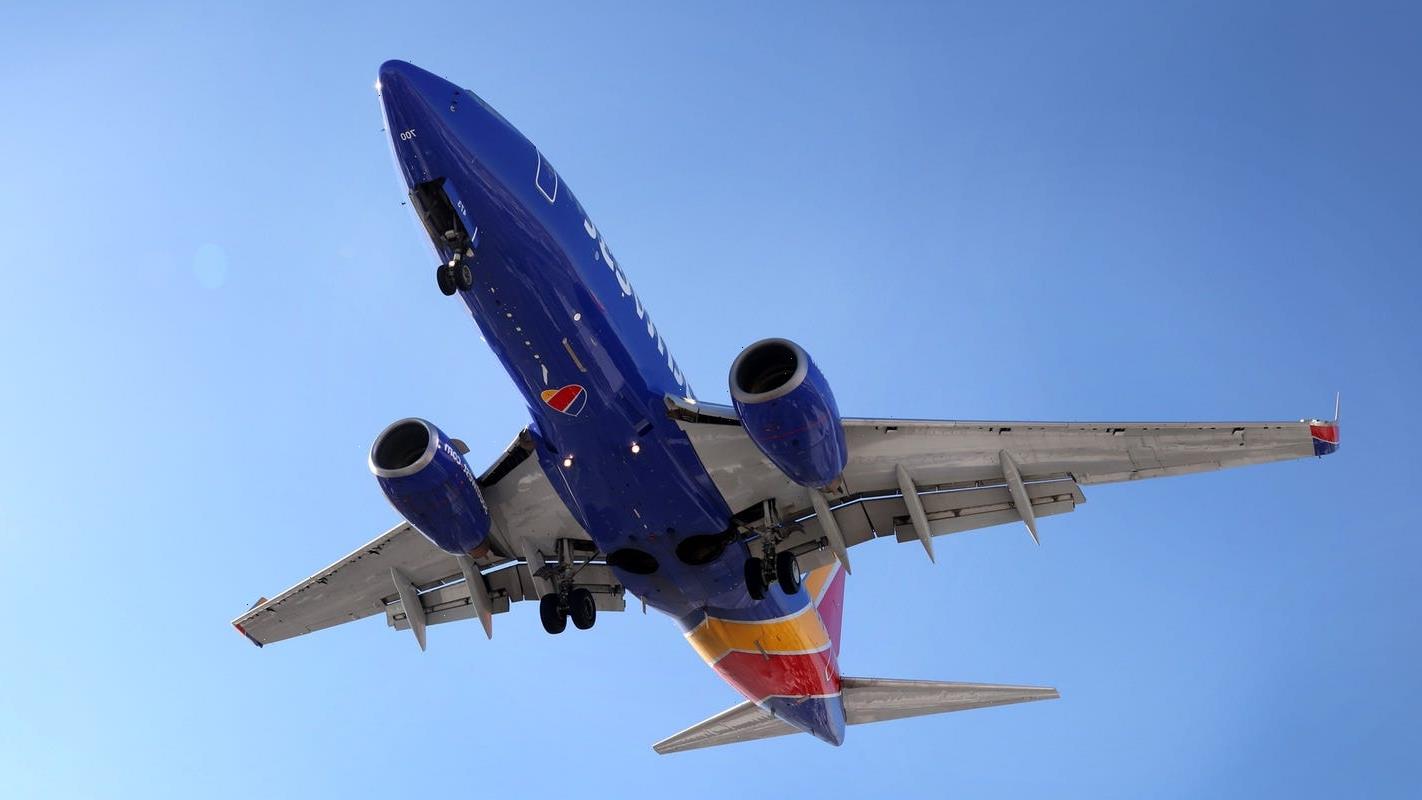BETWEEN Brexit and coronavirus travel restrictions, going on holiday as a Brit has never been more complicated.
The list of documents you need to have prepared is longer than ever, and that doesn't even take into account the need to test for Covid-19 when you get back.
Fortunately, we've rounded up all the things you must have in order before you even think about booking a trip.
Valid passports
The government has warned that passport renewals could take up to ten weeks because of a spike in demand.
Due to the holiday ban, passport renewals hit a low last year, meaning millions may now be out of date.
That means it's more important than ever to check yours that yours has enough time left on it before it expires.
Different countries have different rules, but a good rule of thumb is that your passport needs more than six months of validity left for you to travel.
If you're heading to the EU, changes to the rules post-Brexit also mean your passport needs to be fewer than ten years old.
Because UK passports can be valid up to 10 years and nine months, this means you might have to renew if your passport is older, even if you've got more than six months before it expires.
The right visas
Make sure that you've got all the right visas in place before you travel, and that you leave enough time between booking and your flights to get things sorted.
The rules vary significantly depending on where you're travelling to so you need to check for the specific country requirements.
For instance, if you are going to the US, you will need something called an ESTA.
Travel to Europe is visa-free for short trips, but if you're planning on being there for more than 90 days out of 180 you will need one. Travel to Russia always requires a visa.
You can check the rules wherever you're travelling to on the country page on Gov.uk.
Airport checks
At border control, you may find you need to show more than just your passport.
The documents you need will depend on where you're travelling and that countries specific rules around immigration, holidays and coronavirus.
For instance, at border control, you may need to:
- show a return or onward ticket
- show you have enough money for your stay
- give details of where you will be staying
- show a passenger locator form (each country has a different system, but you can find the details for the country you are travelling to on the gov.uk website)
- show a negative Covid test
Travel insurance
You should make sure you have travel insurance from the moment you book your any element of your trip.
This should mean you're protected against cancellation, delays, sickness and even lost luggage.
Read the small print of your insurance carefully to see what you are covered for and what you aren't.
For instance, most insurers will cover you if you have to self-isolate because you catch Covid-19, but not if you have to quarantine because the country moves from the green list to the amber list while you're away.
Shopping around to get a good deal is a great idea, but don't automatically select the cheapest possible option.
Check the excess and your cover limits to make sure your insurance is robust enough in case something goes wrong and read through any exclusions carefully.
It's also worth doubling up on protection by checking the cancellation policy of the airlines, agents and hotels you choose, and paying by credit card, which gives you greater protections if your holiday is cancelled.
Will my travel insurance cover me?
CONSUMER group Which? warns not all travel insurance policies offer full cover for holidays that can't go ahead due to Covid.
For example, they might cover you if you fall ill with coronavirus but not if you're told to quarantine by NHS Test and Trace when your due to depart.
"As a (very) general rule, insurance covers you for unexpected events or things out of your control, not for changing your mind," said Mr James.
"So if you want to leave a holiday because it looks like the country you are in is going on the red list, you may not be able to claim any costs."
This is why it's important to check the small print before purchasing a policy.
Holidaymakers should also be aware that travel insurance taken out for a green list trip may no longer be valid if you decide to go ahead with it, despite it being moved to the amber or red list.
In particular, this will affect countries that the FCDO advises against travelling to.
Heading to these countries against FCDO advice will mean you're not covered if you have an accident, get ill or lose your luggage when abroad.
However, some travel insurance policies may still cover you if the government has moved it to the amber list but there's isn't an FCDO travel ban in place.
You should check your policy and speak to your provider to see where your insurer stands on this.
GHIC
The UK Global Health Insurance Card gives you access to free healthcare across the EU.
It has replaced the old-style European Health I insurance Cards, although your EHIC will stay valid if it is within its expiry date.
Your EHIC or GHIC is not a substitute for travel insurance as it may not cover all health costs and never covers repatriation costs.
Make sure you have travel insurance as well as an EHIC or GHIC.
Driving documents
If you're planning to drive while abroad you may need to display something called a Green Card.
This document proves you have the minimum insurance cover required by the country you’re driving in.
To get one, you'll need to contact your insurer who will either:
- post you a green card – allow up to 6 weeks
- tell you how to download a green card to print yourself
Check the travel advice for the country you’re going to in case of extra requirements.
Options for holiday spending if you don’t want to exchange currency
THERE are several specialist cards that can give you a great exchange rate.
These cards include travel credit cards and pre-paid cards which can let you pay abroad without fees or at a set exchange rate.
Travel credit cards: Travel credit cards allow you to spend money abroad without being hit by any fees or hidden charges.
But, they may still charge you for taking cash out.
We recommend the Halifax's Clarity Card as it won't charge you for using it abroad, nor are there any fees for withdrawing cash.
But you will be charged interest if you don't repay your balance in full at a rate of 19.9 per cent.
And you will be charged interest on cash withdrawals until your balance is paid off too, at a rate of between 19.9 and 27.95 per cent depending on your credit score.
In other words, just because you are using plastic abroad doesn't mean you don't have to pay these credit cards off like you normally would.
Always pay off your balance before the end of the month with these cards to make sure that any money you saved isn't wiped away by paying interest.
For more on travel credit cards you can read our guide here.
Pre-paid cards: An alternative to carrying cash around is to get a pre-paid card.
These cards allow you to put a set amount of cash on the card at a fixed exchange rate.
So if the rate is good at the moment, you can put money on your card and it will stay that rate when you are on holiday.
Just keep in mind that these cards can sometimes have hidden costs and charges so be sure to read the small print.
Currency or a holiday card
Make sure that you've got enough cash to cover your holiday, including if you test positive for Covid-19 and have to quarantine.
Getting an insurance payout is often not as straightforward as it should be so you'll need some ready cash or a credit card to cover you in emergencies.
Some people have reported having to shell out thousands while stuck abroad, so make sure you're prepared for all eventualities.
PCR and approved Covid-19 tests
If you're travelling during the pandemic you may have to take several tests at different points in your holiday.
These need to be approved, which usually means a PCR rather than a lateral flow test.
Some countries may require you to go to an official testing authority rather than doing it yourself so check the rules where you are heading.
You'll usually need a clean test before you leave the country, and you will also need tests when you return.
Quarantine hotels
If you're travelling to a country on the red list, you'll need to book into a government-approved quarantine hotel for ten days.
While you're there you'll also need to take a coronavirus test on or before day two and on or after day eight of quarantining.
You need to book the hotel and the tests in the 14-day period before you arrive.
There's a dedicated portal for bookings, but if that's not working you can also ring +44 (0)20 7429 9732.
You'll need to cough up too. The rate for a single adult is £1,750, it's £650 for an extra adult or child over 11 and £325 for younger kids.
You can find out more about the quarantine process here.
How to book a holiday this summer and protect your money.
The travel firms with the best flexible policies if you are booking this summer.
How to book 54 days holiday in 2022 using just 22 days of annual leave.
Source: Read Full Article




